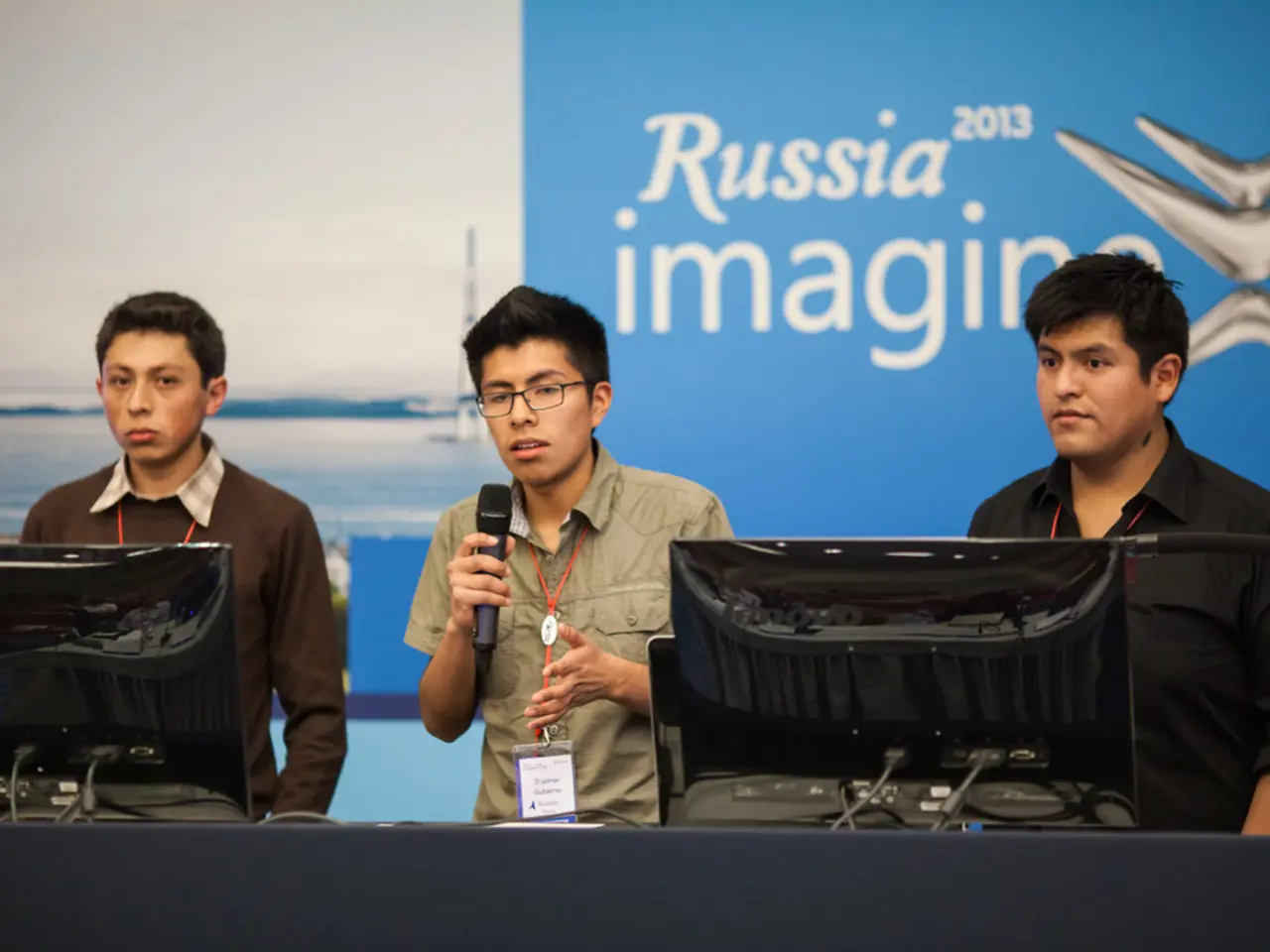"Nvidia's Leadership Clarifies Stance: 'We Will Withdraw Operations in Regions Where Our Presence is Not Desired'"
In a surprising turn of events, major Chinese technology companies such as ByteDance and Alibaba have been ordered by the Cyberspace Administration of China (CAC) to cancel orders for Nvidia's AI chips, specifically the RTX Pro 6000D model. This move is part of an effort to reduce dependence on foreign technology and boost domestic chip production.
The decision came as a blow to Nvidia, as several firms had indicated their intention to purchase tens of thousands of units of Nvidia's AI product and had begun testing with Nvidia's server suppliers. However, the CAC's ban extends beyond the H20 chip and includes other models.
Nvidia's CEO, Jensen Huang, expressed his disappointment about the ban, stating that the firm had been selling GPUs to China for about 30 years. Huang noted that the Chinese market is significant and Nvidia has contributed significantly to it.
Regulators now believe there is sufficient domestic supply to meet demand without Nvidia hardware. Beijing, however, has concluded that domestic chips have reached performance comparable to Nvidia's products. In response, Chinese companies are considering relying on Chinese-made chips as an alternative to purchasing Nvidia AI chips.
On a global scale, Huang vouched for global collaboration on AI, stating it is safer for the world if China and the US collaborate rather than isolate. He also expressed his belief in fundamental truths being fundamental truths.
Meanwhile, the UK is making strides in AI technology. A 'historic' tech deal between Britain and the US, which encompasses £31bn of American investment across AI, quantum computing, and advanced nuclear energy, was recently announced. Nvidia has already invested 120,000 GPUs in collaboration with homegrown Nscale and Coreweave in Britain's AI infrastructure.
Huang also stated that the UK is going to be an AI superpower. He noted Nvidia's extensive investment in Britain's AI infrastructure as evidence of this commitment.
Interestingly, Huang stated that all countries, including China, want AI leadership and aim to protect it for themselves. This sentiment was echoed by recent events, as the CAC's ban on Nvidia's AI chips affected companies like ByteDance and Alibaba.
The ban on Nvidia's AI chips in China degraded the firm's sales, as the Chinese market has been a significant contributor to Nvidia's revenue for decades. Despite this setback, Huang remains optimistic about the future of AI and the role Nvidia will play in it.
This news was announced on Tuesday, adding another layer to the complex global dynamics of AI technology. As the world continues to advance in this field, it is clear that collaboration, investment, and strategic decisions will play crucial roles in shaping the future of AI.




